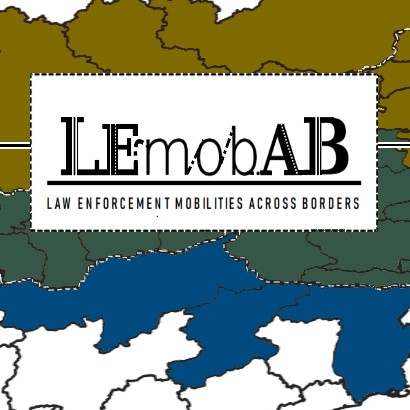 Police cooperation across border-regions has a long history in Europe: whilst informal cooperation across border-regions has been the rule rather than the exception, cooperation has been increasingly institutionalised, initially through bi- or multilateral agreements and later also through supranational EU law. Both the Treaty on the Functioning of the European Union and the Convention implementing the Schengen Agreement encourage bilateral cooperation between member states. Increasingly, however, the EU Commission has problematised the differential configuration of bilateral agreements and the multiple options given in EU law as a “complex web”, said to hamper an effective law enforcement cooperation. As envisaged in EU Security Union Strategy (2020) and in the Schengen Strategy (2021) the Commission presented proposals for an EU Police Cooperation Code. Addressing in particular cross-border police cooperation instruments - such as hot-pursuit, cross-border surveillance, Police and Custom Cooperation Centres and joint patrols -, in 2022 the European Council adopted upon proposal of the Commission a Recommendation on operational law enforcement cooperation.
Police cooperation across border-regions has a long history in Europe: whilst informal cooperation across border-regions has been the rule rather than the exception, cooperation has been increasingly institutionalised, initially through bi- or multilateral agreements and later also through supranational EU law. Both the Treaty on the Functioning of the European Union and the Convention implementing the Schengen Agreement encourage bilateral cooperation between member states. Increasingly, however, the EU Commission has problematised the differential configuration of bilateral agreements and the multiple options given in EU law as a “complex web”, said to hamper an effective law enforcement cooperation. As envisaged in EU Security Union Strategy (2020) and in the Schengen Strategy (2021) the Commission presented proposals for an EU Police Cooperation Code. Addressing in particular cross-border police cooperation instruments - such as hot-pursuit, cross-border surveillance, Police and Custom Cooperation Centres and joint patrols -, in 2022 the European Council adopted upon proposal of the Commission a Recommendation on operational law enforcement cooperation.
LEmobAB ― Law Enforcement mobilities Across Borders ― investigates the interdependency between localised policing-practices across border-regions and European legal-political practices in the field of police cooperation and interrogates the ways that policing contributes in shaping the European space. Three questions lead this research (1). Empirically, what are the relations and variables between situated bilateral cross-border police cooperation (CBPC) and the role of legal-geopolitical practice in fostering security cooperation? Conceptually, what role do LE mobilities and border-regions play in the creation of a European space? And applied, how can qualitative police- and security-research’s understanding of complex social, legal and political dynamics increase its impact? By connecting bottom-up empirical insights and situated experiences from selected border-regions with the study of ongoing legislative developments on EU level, this study contributes to filling an important knowledge gap. On a theoretical level the project develops the interface between legal anthropology, international relations/international political sociology and global criminology. In its applied dimension, the project promotes practices of knowledge visualisation in analysis and communication.
The project’s output, including a mapping and visualisation of selected bilateral provisions in force, is available through the project website.
Researcher
Monika Weissensteiner (School of International Studies, University of Trento)
Supervisor
Alessandra Russo (School of International Studies, University of Trento)
Funding
European Commission, HORIZON 2021 programme, Marie Sklodowska-Curie Postdoctoral Fellowship, Grant Agreement No 101063837.
Cordis: https://cordis.europa.eu/project/id/101063837
